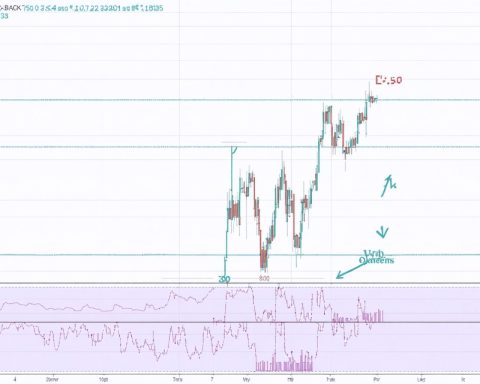The Future of Quantum Computing Investments
Recently, Nvidia’s CEO, Jensen Huang, stirred up the tech world with his insights on quantum computing during the CES conference. While he displayed optimism about quantum computing, he warned that the technology might need around 20 years to become genuinely impactful. This frank assessment led to a noticeable drop in the stocks of prominent quantum computing companies.
The performance of companies like Rigetti Computing, D-Wave Quantum, IonQ, and others has seen significant fluctuations. After a brief rally, these stocks experienced substantial sell-offs shortly after Huang’s remarks, raising eyebrows among investors.
It’s crucial to acknowledge that despite their recent growth, companies in the quantum sector remain in their infancy, struggling to generate revenue and facing ongoing cash flow challenges. Huang’s comments serve as a stark reminder that although there’s potential, quantum computing is a long-term investment sector.
For investors contemplating entering this domain, there are avenues to consider. Purchasing shares in individual quantum computing firms could provide direct exposure. Alternatively, those looking for reduced risk might find solace in a quantum-themed ETF, which diversifies across various stocks in the arena.
Ultimately, while the promise of quantum computing is undeniable, aligning with well-established tech titans like IBM, Microsoft, and Nvidia—who are cautiously exploring this innovation—may present a more stable investment strategy. The journey of quantum computing is just beginning, and it’s prudent for investors to tread carefully.
Understanding the Broader Impact of Quantum Computing
The evolving landscape of quantum computing holds significant implications for various facets of modern society, culture, and the global economy. As this technology matures, its potential to revolutionize industries—from pharmaceuticals to finance—cannot be overstated. For instance, quantum computing promises to solve complex problems that current classical computers cannot, enabling rapid drug discovery and significantly enhancing predictive models in finance.
Furthermore, investment in quantum technology is not just a financial endeavor; it reflects a strategic pivot toward future innovation. Countries worldwide are recognizing the stakes of this technological race. Nations like China and the United States are funneling billions into quantum research, fostering an environment where intellectual capital leads to geopolitical advantage in technology. Such investments could catalyze advancements across sectors, reinforcing the need for global cooperation and regulation to ensure ethical development and application.
Moreover, the environmental effects of quantum computing innovation could be profound. The energy efficiency of quantum systems, when fully realized, may outstrip that of classical computing, potentially leading to reduced carbon footprints in data centers. As this technology is developed, its influence on sustainability on a global scale becomes a critical discussion point.
Looking ahead, as the field progresses, we can expect to see a growth in quantum ethics discussions, focusing on the societal implications of such a powerful tool. With the promise of genuine disruption at our doorstep, the long-term significance of quantum computing extends far beyond mere financial metrics—it stands to redefine our technological and ethical landscapes for generations to come.
Unlocking the Future: What Investors Need to Know About Quantum Computing
The Future of Quantum Computing Investments
Nvidia’s recent insights shared by CEO Jensen Huang at the CES conference have ignited discussions around the potential and timeline of quantum computing. Huang’s candid forecast suggests that the technology might not produce significant results for about 20 years, a statement that has raised flags among investors and led to a downward trend in the stock value of major quantum computing companies.
Current Landscape and Market Performance
The market for quantum computing companies such as Rigetti Computing, D-Wave Quantum, and IonQ has been highly volatile, particularly following Huang’s remarks. After a brief uptick in stock prices, many of these companies faced steep declines, highlighting the uncertainty and speculative nature of the quantum computing sector.
Despite some recent advances, the reality remains that many quantum technology firms are in their nascent stages. Most are still grappling with generating consistent revenue and maintaining healthy cash flow. This situation serves as a foundational reminder for potential investors that quantum computing has not yet reached a stage of maturity.
Investing Strategies: Options for Investors
For those looking to invest in the quantum computing space, there are multiple strategies to explore:
1. Direct Stock Purchases: Investing directly in individual quantum computing companies can lead to potential high rewards but also higher risks associated with the volatility of these newer market players.
2. Quantum-themed Exchange-Traded Funds (ETFs): For a more diversified approach, investors might consider quantum-themed ETFs. These funds pool investments across various companies in the quantum space, potentially mitigating some risk associated with individual stocks while still allowing exposure to the sector.
Established Tech Giants as an Investment Avenue
Additionally, aligning investments with larger, established technology firms is worth considering. Companies like IBM, Microsoft, and Nvidia have begun to explore quantum computing’s potential. These tech giants are more stable options and can provide a cushion against the volatility of smaller quantum startups.
Emerging Trends and Innovations in Quantum Computing
The field of quantum computing is continuously evolving with various emerging trends that could reshape the landscape:
– Hybrid Quantum-Classical Computing: Many firms are exploring hybrid computing models that leverage both classical and quantum processing capabilities, which may lead to practical applications sooner than full quantum systems can achieve.
– Quantum Software Development: As hardware progresses, the need for robust quantum algorithms and software becomes ever more crucial. Companies focused on creating applications for quantum machines are increasingly significant in this investment ecosystem.
– Collaborative Research Initiatives: Technology firms are engaging in partnerships and research initiatives to advance quantum technologies. Such collaborations can drive innovation and increase the overall pace of development.
Pros and Cons of Quantum Computing Investments
Pros:
– High Growth Potential: Successful quantum computing breakthroughs can lead to revolutionary advancements across multiple industries, including pharmaceuticals, finance, and logistics.
– Diversification: Investing in quantum technology allows diversification into an emerging market.
Cons:
– Long-term Horizon: Significant ROI may not materialize for years, as the technology is still developing.
– Market Volatility: The quantum computing sector is subject to high fluctuations in stock prices and investor sentiment.
Predictions and Insights: The Path Forward
As the field of quantum computing continues to develop, it is essential for investors to stay informed and consider both the risks and opportunities. While optimism surrounds the potential of quantum technology, practical applications may still be years away.
Understanding the balance between immediate returns and long-term growth is crucial for navigating this frontier. As innovations unfold and more substantial results emerge, the investment landscape may shift dramatically.
For more insights into technology investments, visit Forbes.

















